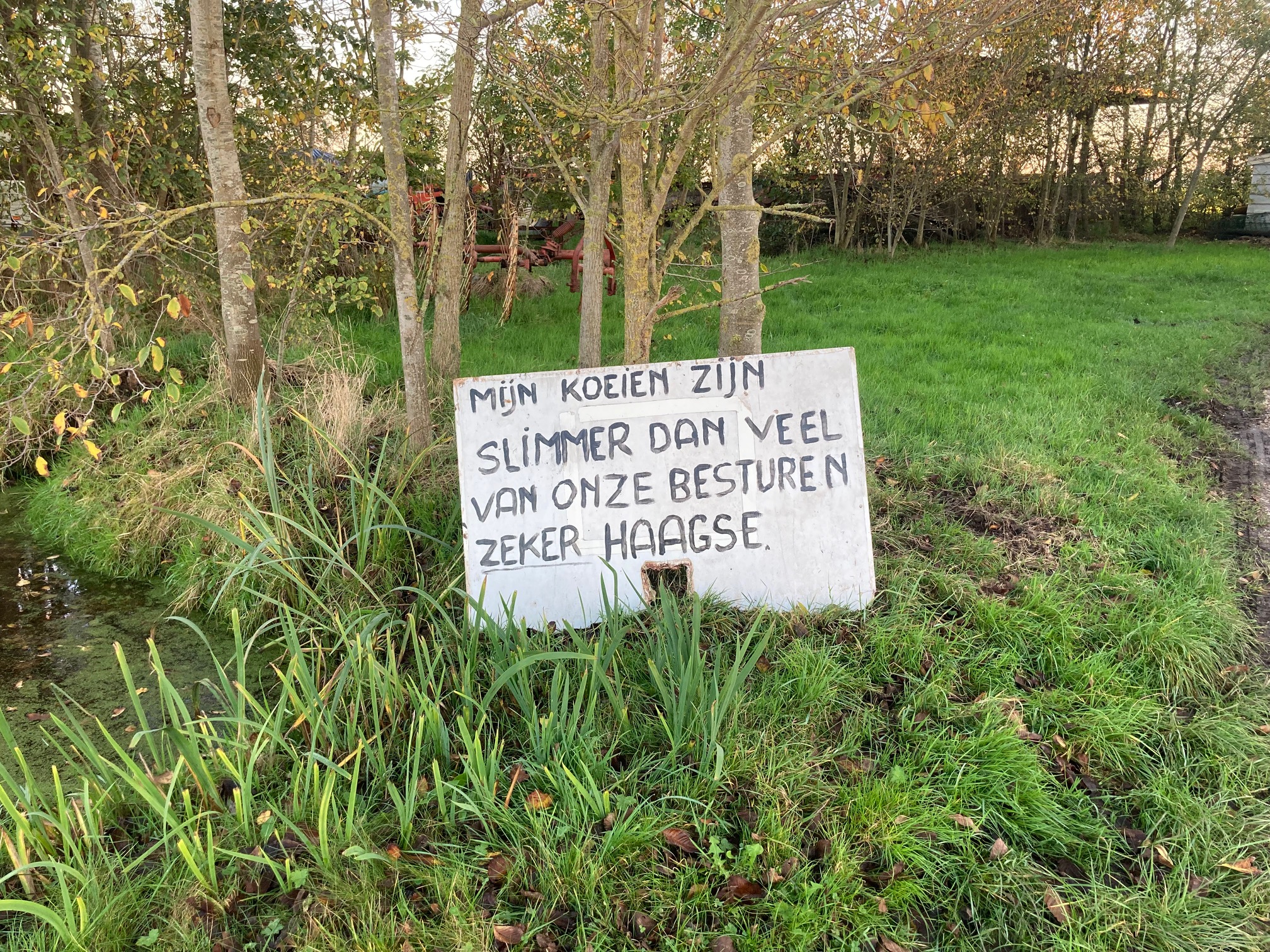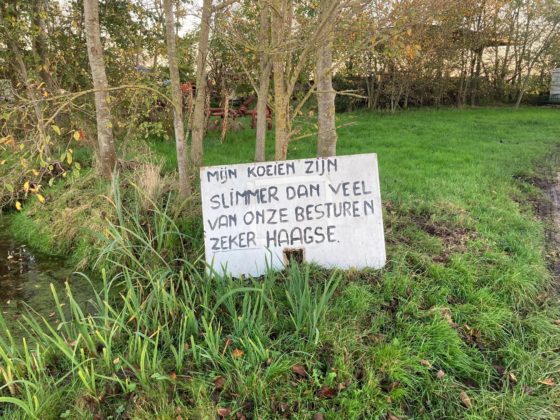Compulsory purchase will be an option to close down farms: ministers


The cabinet has published its plans to reduce nitrogen-based pollution in the Netherlands and, as widely leaked, they include a buy-out plan for farmers.
Ministers have confirmed that 2,000 to 3,000 farms and other major polluters located close to environmentally sensitive areas will be offered a buy-out deal amounting to ‘well over’ 100% of the value of their company.
The leaks had suggest the deal would be 120%, but the terms of the buy-outs have not yet been finalised by ministers.
There will be no compulsory purchases as yet, but if enough farmers do not come forward, ‘with pain in the heart’ we will have to move towards compulsory purchase, nitrogen minister Christianne van der Wal told MPs on Friday. ‘There is no better offer coming.’
The farms and other businesses which need to close will be told in January and ministers will assess if enough have come forward in the autumn.
By removing some 2,000 to 3,000 sources of nitrogen compound pollution, nature will be able to recover, farms without proper permits can be legalised and construction can resume, ministers say.
In the long term, ministers are looking into levying a tax on nitrogen emissions, in line with the CO2 levy. That, they say, will make it more attractive to work in a sustainable way.
Europe
The cabinet needs to reduce emissions to comply with European regulations requiring it to protect conservation zones known as Natura 2000 areas.
But compulsory purchases are a red line for farmers, who have staged mass protests, vandalised infrastructure and picketed ministers’ houses for the last three years as they try to press the government to change course.
Their initial response to the cabinet’s plans has been mixed, with the threat of compulsory purchase remaining a problem.
Reactions
The biggest farmers’ lobby group LTO Nederland, said it is most concerned about the additional restrictions which remaining farmers will face. In addition, plans to allow more variation in the water table will have an impact on both arable and livestock farmers, LTO Nederland said.
The Netherlands Environmental Assessment Agency (PBL) said last month previous buyout schemes in the last 25 years had only cut the total head of cattle by a few percentage points.
The cabinet also said on Friday it wanted to draw up a long term plan for the future of agriculture together with farming organisations, environmental groups and local government.
Thank you for donating to DutchNews.nl.
We could not provide the Dutch News service, and keep it free of charge, without the generous support of our readers. Your donations allow us to report on issues you tell us matter, and provide you with a summary of the most important Dutch news each day.
Make a donation